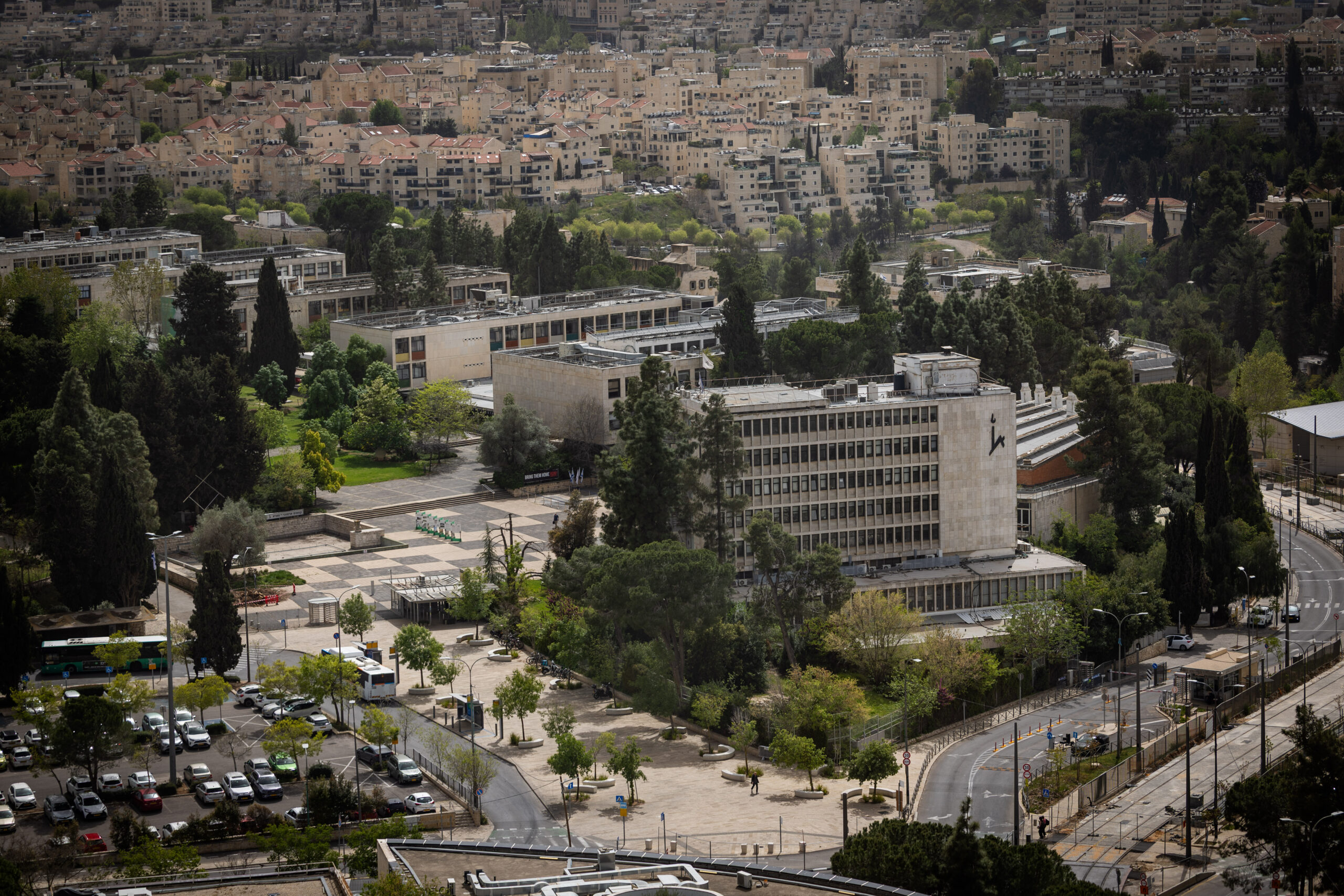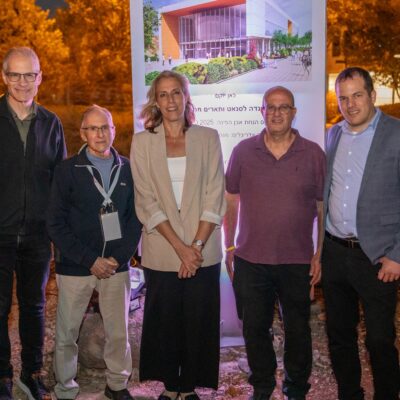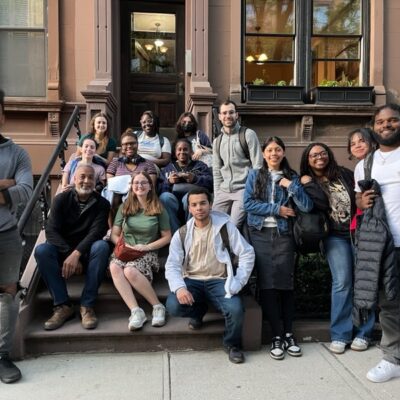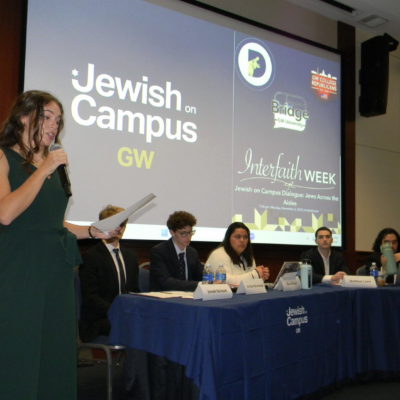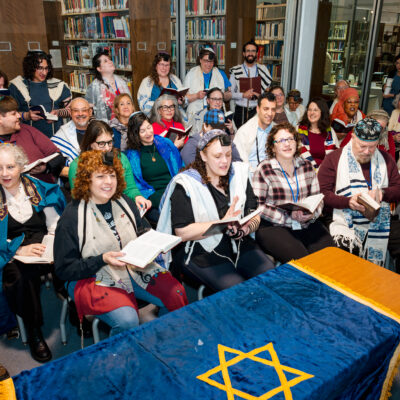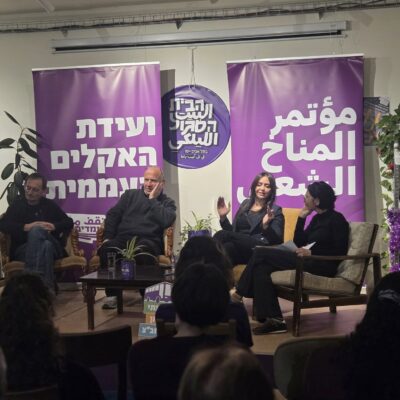Reclaiming Food, Reclaiming History

By Ben Kaplan
[This is the fourth article in a series about the connection between Jewish identity, food, and the natural environment, written by grantees and partners of The Covenant Foundation.]
What defines Ashkenazi Jewish food? Like any great Jewish debate, the arguments are endless: Should matzoh balls be fluffy or dense? Gefilte fish, sweet or peppery? Borsht, hot or cold? Creamy or not? And is borsht even Jewish?
These questions might seem trivial, the result of personal or familial preferences, but they can carry deep emotional and historical resonance. Take the famous example of gefilte fish: If you think gefilte fish should be sweet, your concept is one of a galitsiyaner, or Southeastern Polish tradition, a region where Jewish Eastern Europe preferred sweetness; if, rather, your imagined gefilte fish is peppery, you’re thinking of a litvak, or Lithuanian-Jewish tradition, a region where Jews preferred more pepper.
These differences – and there are many of them – open worlds of historical detail and nuance. Food is a vehicle through which Jews (and all cultures for that matter) carry their stories and traditions, their memories of the ‘Old Country,’ and a living body of folk wisdom.
Today, much of the Ashkenazi Jewish food tradition has been lost, torn apart by the processes of immigration, acculturation, and industrialization. Many of the stereotypes associated with Ashkenazi Jewish food – it’s dull, brown, heavy, it gives you heartburn – are actually an image of the cuisine after it has undergone this process of transformation and loss. We’ve lost the lighter, more colorful foods, the fermented foods, seasonal vegetables, and unique flavors that define this cuisine’s development in a particular terroir. To reclaim these culinary elements – and in the process, our connection to tradition, and, as many argue, our health and the health of the environment – we must investigate history. We must dive deep into the foodway.
For the past year, we’ve done precisely this through the development of A Seat at the Table: A Journey into Jewish Food, YIVO’s latest online course, created with support from The Covenant Foundation. We’ve brought together an exceptional team of food scholars and historians, cookbook authors, and chefs to film lectures, cooking demonstrations, and roundtable discussions on important topics in Ashkenazi Jewish cuisine. The course, led by food scholar Darra Goldstein along with Liz Alpern and Jeffrey Yoskowitz of The Gefilteria, features more than 20 other individuals from the academic and food worlds. It is a deep exploration of Ashkenazi Jewish cuisine, from its origins in ancient Jewish text, to its flourishing in Eastern Europe, to its spread and evolution across many diasporas. In May 2020, we will launch this course to the public, and offer it to schools, institutions, and individual learners around the world.
To reinvigorate the global, contemporary Jewish kitchen with the folk wisdom embedded in Ashkenazi Jewish food, with food that is naturally seasonal, sustainable, and organic will require a bit of imagination, but it’s possible. That imagination begins with an exploration of history, and that history is far closer than you think. The one crucial ingredient remains: our desire and will to reclaim it.
Ben Kaplan is Director of Education at the YIVO Institute for Jewish Research, where he directs programs that teach Jewish history and culture to a broad and diverse audience. These programs include the Uriel Weinreich Summer Program in Yiddish Language, Literature, and Culture, the YIVO-Bard Winter Program on Ashkenazi Civilization, and the Shine Online Educational Series. Also an opera librettist, he wrote the libretto for State of the Jews, an opera collaboration with composer Alex Weiser about the life of Theodor Herzl. As a librettist, he creates historically-informed dramatic works that chronicle turning points in history lost to contemporary cultural discourse; as an educator, he seeks to facilitate connections to a Jewish culture that is vibrant, accessible, and meaningful to both the past and the future.

 Add EJP on Google
Add EJP on Google

